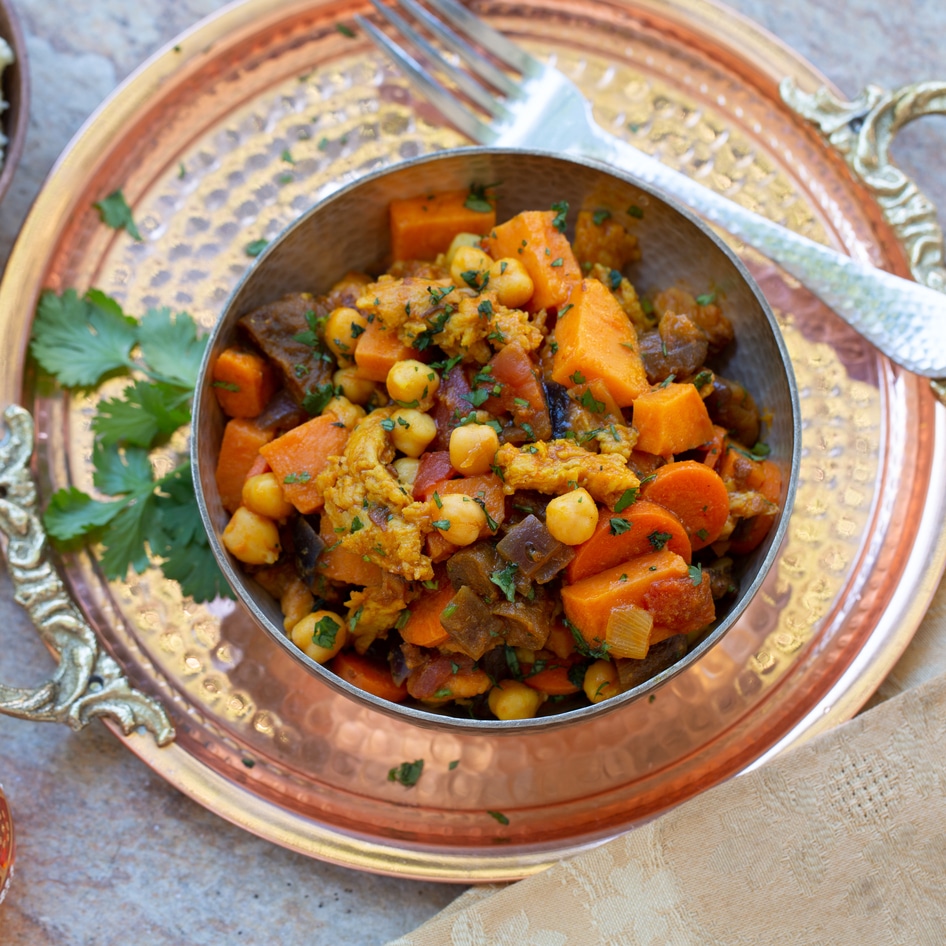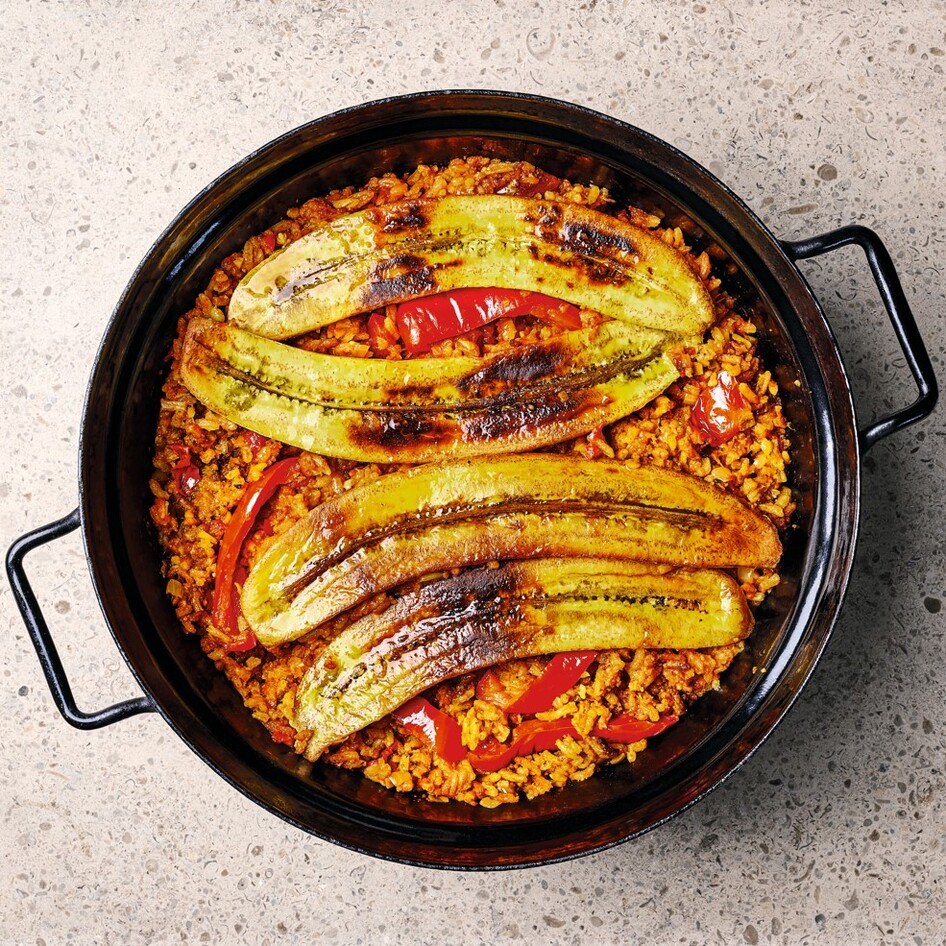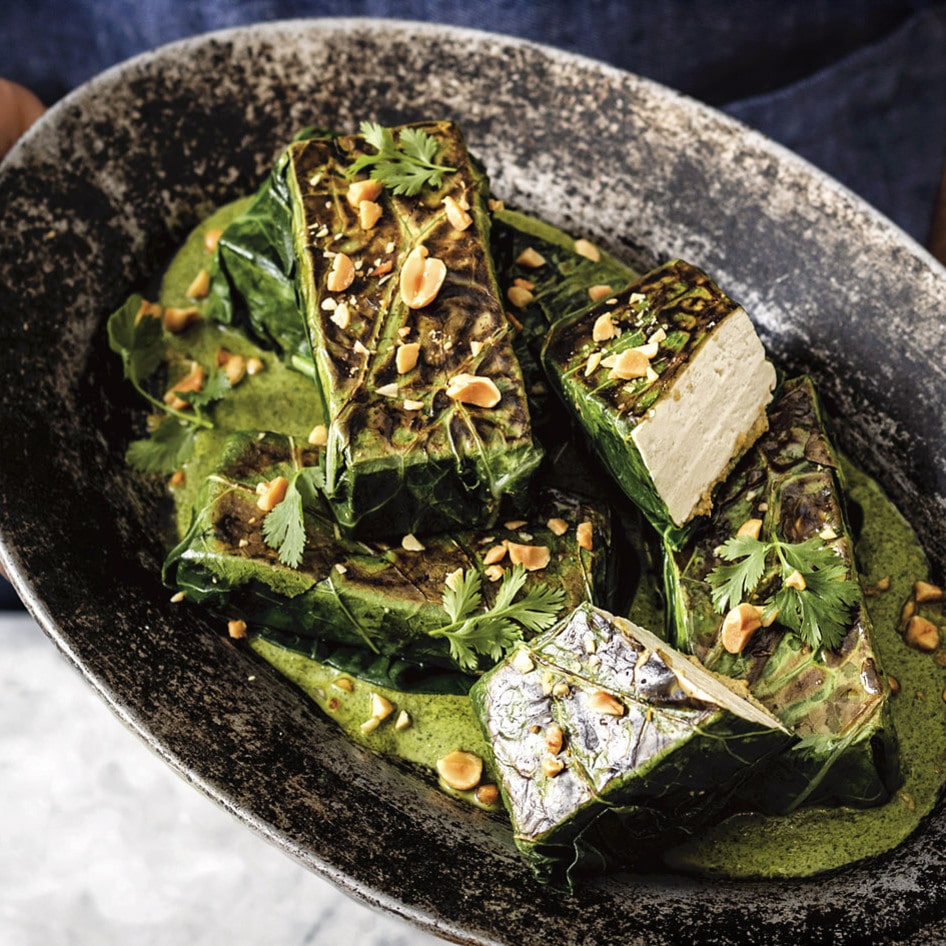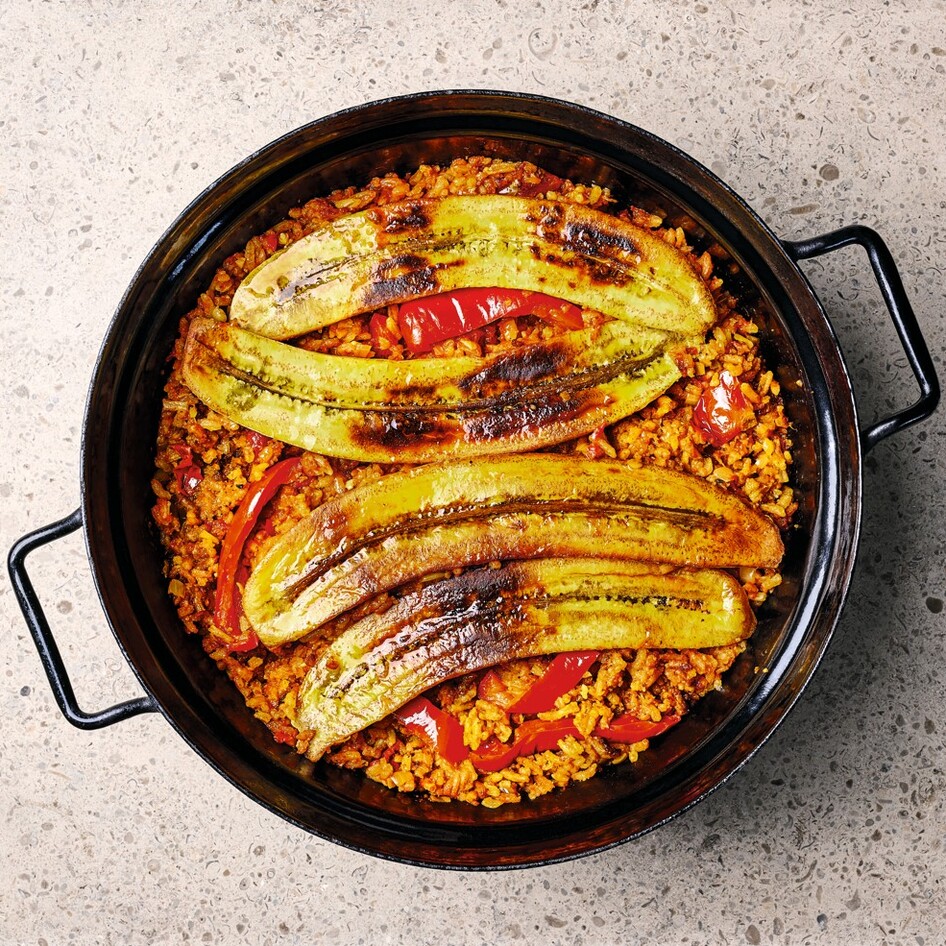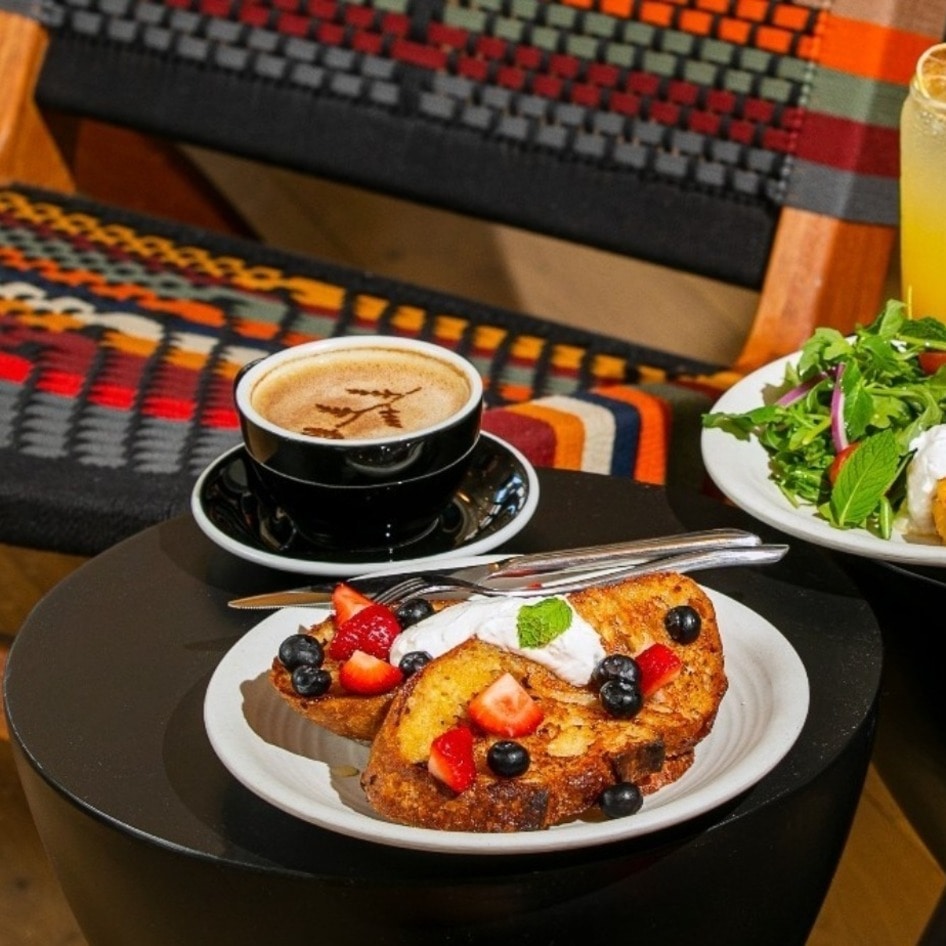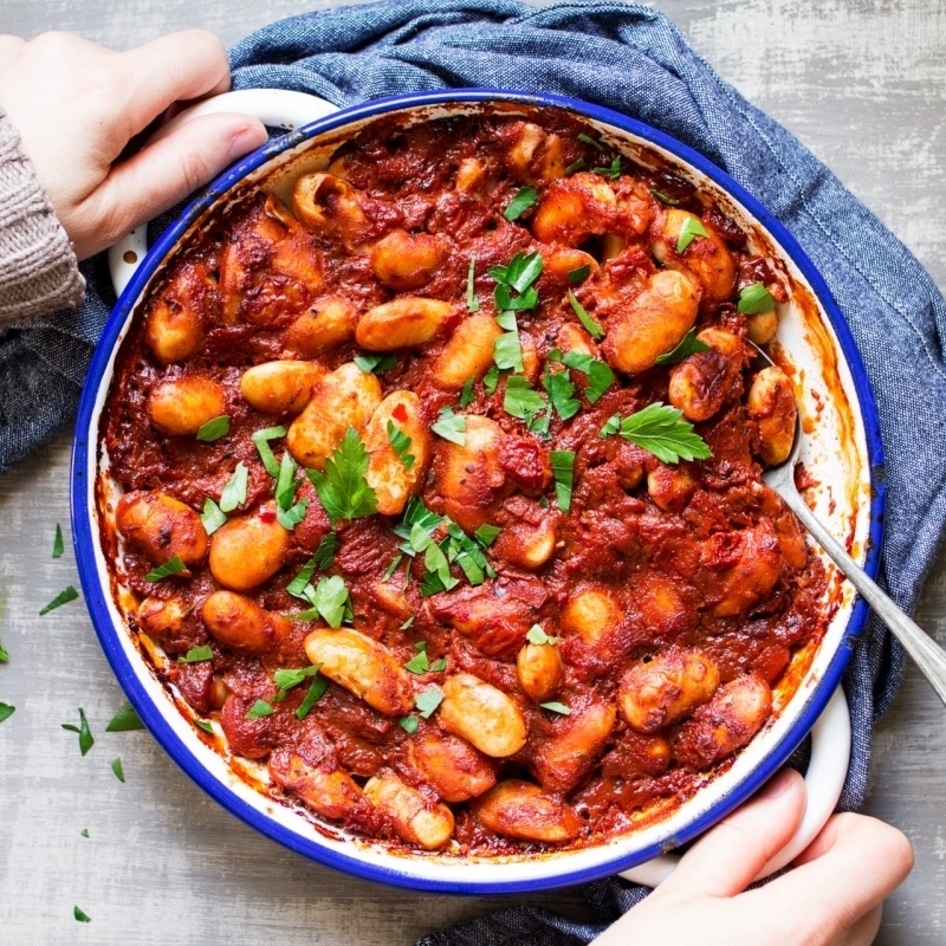4 Reasons to Visit Ghana
Jollof rice, spicy soups, and exotic fruits are just three examples of why this West African nation should be on every vegan’s bucket list.
February 22, 2016
From the rich history of the Ashanti Kingdom to the historical castles and forts dotted along the coast, Ghana is full of cultural richness. What most people know about the West African nation are the friendly people, the brightly colored garb, the exquisite beaded jewelry, and the equatorial heat, but this country of approximately 28 million also boasts a budding vegetarian scene that offers hearty, traditional specialties such as “Red Red” and fragrant rice dishes … served without cruelty.
Traditional Ghanaian fare is veg-friendly and consists of staples such as yams, cassava (yucca), plantain, rice, and cocoyam (taro root). However, what really accentuates Ghanaian dishes are the savory sauces, stews, and soups that entice the palate with exotic African spices and hints of ginger and habanero peppers. While each region in Ghana is distinct and offers a variety of cultural and natural attractions, there’s something for vegans in every part of the country.
Vegetarianism in Ghana is a growing trend. Though Ghanaians take their grilled meats seriously, they are becoming more aware of the health implications of eating animals while becoming more health conscious. There are a few exclusively vegan restaurants in major cities, yet an increasing number of restaurants offer meatless options. When you say you don’t eat meat, you don’t get quizzical looks—as often.
Getting to Ghana is relatively easy—just catch a direct 10-hour flight from Washington DC to the capital city of Accra. Getting around is fairly simple, too, as there are taxis, “tro-tros” (inexpensive miniature buses), and rides for travelers to charter.
The capital
Accra is home to a slew of shopping, nightlife, and dining options in Ghana. A bustling cosmopolitan city with cuisines from all over the world, the capital is home to an abundance of vegan street food such as roasted corn on the cob, boiled peanuts, plantain chips, and roasted sweet plantains. Be on the lookout for waakye—a delicious rice and black-eyed peas dish originating from northern Ghana that is tinted dark brown using millet leaves and topped with a spicy tomato stew. Sprinkle waakye with gari (ground dried roasted cassava) or add salad and avocado for a heartier meal. Furthermore, visit any one of Accra’s ubiquitous “chop bars” (outdoor food bars serving inexpensive meals) for banku or kenkey (fermented cornmeal) served with delicious spicy tomato-based pepper sauce or a spicy okra stew.
Ghana’s unofficial national dish is fufu and soup. Prepared by pounding a mixture of boiled cassava and plantains into a lazy ball, the dense and mildly sweet fufu is served in a savory, hot, tomato-based soup. For variety, the meal can be accentuated with peanut butter or palm nut fruit butter and simmered over a charcoal fire until the flavors meld and blossom into a fragrant, piquant broth. These soups traditionally contain meat and fish, but substituting for mushrooms, garden eggs (a pale yellow, smaller variety of eggplant, not the big purple ones we are familiar with in the United States), and okra are easy.
Jollof rice—a one-pot, spiced rice dish—and “Red-Red” are favorites among vegetarian Ghanaians. “Red-Red” is a rich, hearty black-eyed pea stew simmered in red palm oil and served with juicy morsels of fried sweet plantains, making for the perfect combination of sweet and savory.
The Republic Bar & Grill in downtown Osu is one of the many bars serving vegan cocktails and local beers. End your night with the signature kokoroko, an exotic mix of hibiscus juice, mint, brown sugar and akpeteshie, a potent local liquor brewed from fermented sugarcane juice.
The king’s table
One-hundred-and-twenty-five miles northwest of Accra lies Kumasi, the former capital of the rich and powerful Ashanti kingdom. Currently known for its dense forests filled with plantain trees and tubers that form the basis of many veg-friendly dishes, Kumasi is located at the heart of the Ashanti region and is where local favorite ampesie—a dish consisting of boiled yams, green plantains, or cocoyam (taro root)—is served with nkontomire stew.
Many Ghanaian stews, sauces, and soups start with a foundation of oil, chopped onions, minced hot peppers, and diced vine-ripened tomatoes. From there, a sophisticated layering of spices and textures are added. Nkontomire begins with this basic roux of flavors (using sweet red palm oil as its base), is finished with shredded, garden-fresh cocoyam leaves, and thickened with protein-rich egusi (ground pumpkin seeds).
Fruits of the Fante belt
Cape Coast is located in Ghana’s Fante belt, approximately 79 miles west of Accra, and was once the largest slave-trading center in West Africa. Former European colonial powers governed from the infamous Cape Coast and Elmina slave castles, where enslaved African men, women, and children were kept before being herded into the bowels of waiting ships that crossed the Atlantic to Europe and the Americas.
Today, the Fante belt is home to the Fante tribes of the Akan people and boasts an abundance of fresh fruit and rows of native coconut trees swaying in the warm sea breeze. En route from Accra to Cape Coast, roadside traders sell kaakro (spiced bean and plantain fritters) and epitze, a moist, dense bread made with ripe plantains, cornmeal, ginger, and pepper seasonings and then baked in a traditional clay oven.
Travelers also find colorful roadside fruit stands stocking fresh mangos, guava, prickly pear, avocados, African star fruit and sweet, white-fleshed pineapples. The heat in Ghana makes hydration necessary, and nothing satiates like cool, refreshing, mildly sweet, sometimes sparkling, coconut water. Stop by one of the numerous coconut merchants to drink straight from the fruit. Return the empty shell to have it split open for a healthy snack of fresh coconut meat to-go.
Sunday brunch, African-style
Elmina is the fishing hub of the Central Region, approximately 98 miles from the capital, but thanks to restaurants such as Gramsddel J, fish isn’t the only thing on the menu. Located on the beach with a great view of the Elmina castle across the Baka-Benya bay, the eatery serves a local Sunday brunch favorite called omotuo (rice dumplings) and peanut butter soup—a hearty, warming Sunday tradition for most Ghanaians. If you’re feeling homesick, request the American-style vegan burger served with yam or cassava fries. The restaurant also has an array of smoothies and fresh local fruit juices such as ginger-hibiscus juice, sweet dandelion juice, pineapple tonic, lemongrass tea, and coconut elixir.
Clarissa Bannor (This AfropolitanLife.com) is a Ghanaian-American writer who’s blog weaves African culture, history, and identity with everyday vegan life.
JUMP TO ... Latest News | Recipes | Guides | Health | Subscribe

